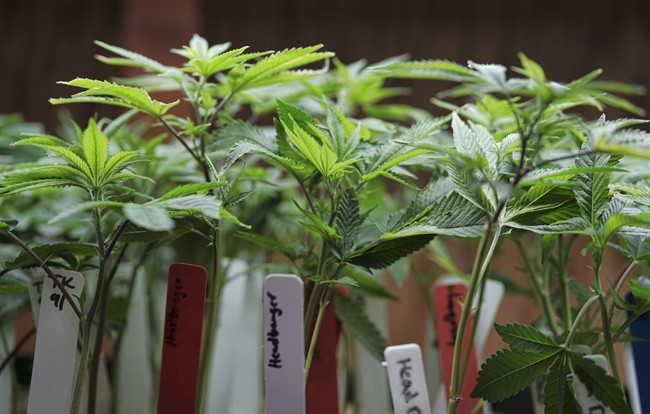Finance Minister Karen Casey says the province will hold consultations on how to legalize the sale of marijuana before making key decisions.

Casey was in Ottawa on Monday for meetings with federal and provincial finance ministers — where she says pot talk was “dominating” most of the meeting.
READ MORE: Ottawa sticks with pot deadline despite provincial concerns
“Public consultation in some form is important,” Casey told Global News on Tuesday. But she said no final decisions on the consultation have been made.
“That’s a priority for us to make sure that we get that piece ready, we get it out to the public and then we use that information to help guide our decisions.”
More questions than answers on legalizing pot
Casey reaffirmed her government’s commitment to meet the July 1 deadline for legal pot sales, but said almost everything else remains unclear.
For example, what age of majority the province will choose for pot sales is still unknown — Ottawa set 18 as the minimum but Casey suggested consultations will help determine whether Nova Scotia goes higher. Other unknowns are who will be allowed to sell marijuana and where, and how will enforcement and administration be managed.
“Decisions about who does what, when, where, how, and why are the unanswered questions,” Casey said.
Still she said the meeting in Ottawa was “productive” because it allowed all provinces to air their concerns about the policy.
READ MORE: McNeil promises legal pot sales by federal deadline
There are also outstanding questions about how much of the costs Ottawa will take on. Casey said programs for addictions, mental illness, and school-based mental health care will “have to be enhanced.” But she said there are “unanswered questions” about how much of that responsibility will be assumed by the federal government.
“We know implementation will be costly,” she said. “We need to make sure, as provinces, that we are able to cover those costs.”
She said it’s possible revenues from the sale of marijuana will cover the costs but that also hasn’t been determined.
“We posed questions, we will be looking for answers to those questions,” she said.
Casey said she will have another meeting this summer with her Atlantic Canada colleagues and the next federal-provincial meeting is scheduled for December.




Comments